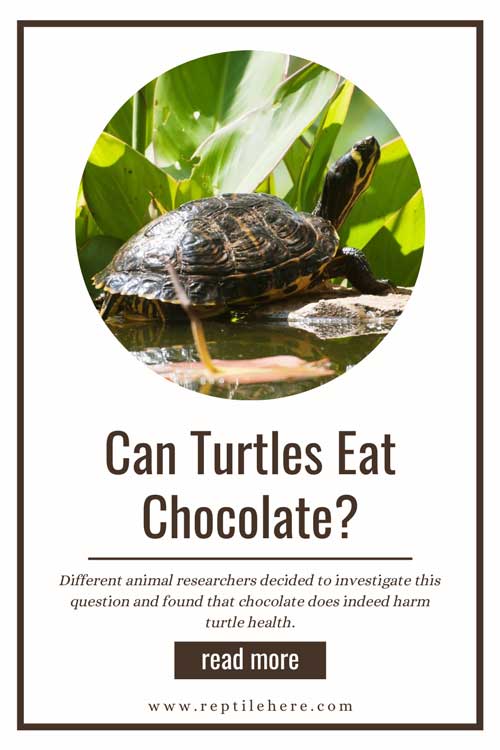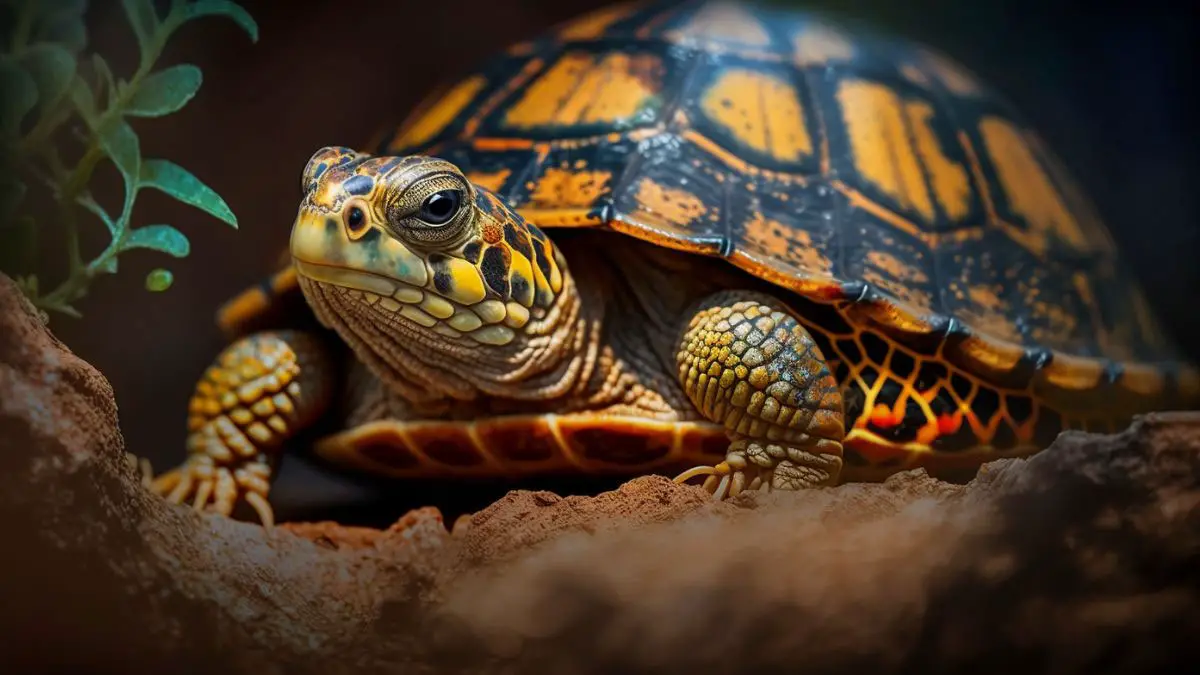Can Turtles Eat Chocolate? Here’s What Experts Say
Chocolate is a popular food that has many benefits, such as being high in sugar and calories. It is also a good source of essential minerals. However, does chocolate have the same effect on the turtle?
Can turtles eat chocolate? Different animal researchers decided to investigate this question and found that chocolate does indeed harm turtle health.
Yet, this question has puzzled many for years, with some claiming that turtles can’t stomach the sweet stuff while others insist that they can. In this article, we’ll try to find out for sure whether or not turtles can stomach chocolate and, if so, what kind.
Can You Feed Chocolate to Your Pet Turtles?
Contents
Who wouldn’t want to see their little turtle gobble up a delicious piece of chocolate? However, you should not give your pet turtle any chocolate. Chocolate contains high amounts of sugar, milk, cocoa, butter, preservatives, and emulsifiers, all of which can be harmful to your turtle.
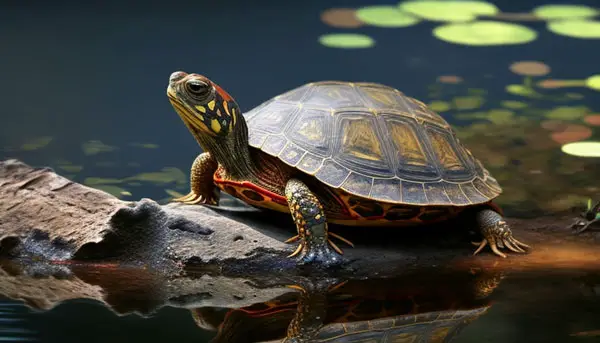
While a small amount of chocolate may not seem like it would harm your turtle, it can cause health problems over time. Chocolate can cause liver damage in turtles and also lead to obesity. Additionally, chocolate contains caffeine which can be dangerous for turtles. Caffeine can cause seizures and even death in turtles.
When it comes to digesting food, turtles are unfortunately not as capable as other animals. In fact, they can’t handle food that contains dairy or carbs very well. The reason for this is that these types of foods don’t break down quickly in the turtle’s stomach, leading to issues like bloating and gas. Even in small quantities, they can be very deadly.
A study published in the journal Toxin Research found that the metabolism of a turtle’s liver is significantly lower than ours, meaning that the toxins from chocolate stay in their body for a much longer time, which can travel to the brain and circulate through the body.
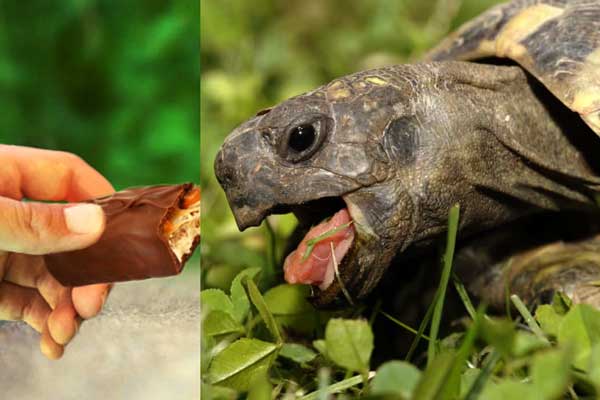
This is particularly concerning as Turtles are especially vulnerable to the harmful effects of chocolate because their bodies don’t break down its compounds as quickly as those of other animals.
Health Risks for Turtles Eating Chocolates
A recent study found that the toxins from chocolate stay in turtles’ bodies for a much longer time, which means they can travel to the brain and circulate throughout the body. This could be potentially harmful to their health, as the chemicals could damage their organs over time.
The researchers looked at how two different toxins – methylxanthines and cocoa butter – affected turtles’ health. They found that both of these toxins stayed in the turtles’ bodies for a long time and that they were able to reach the brain and other organs. This could potentially cause damage to these vital organs over time.
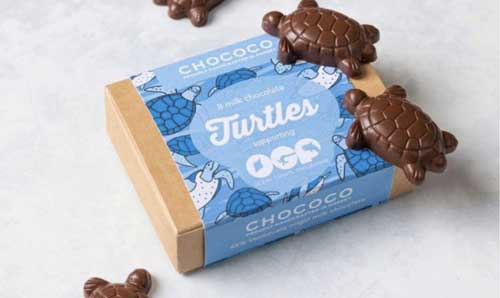
The researchers say that this is worrying news for turtles, and they advise people not to give chocolate to turtles as it could harm their health.
Why Shouldn’t You Feed Chocolate To Turtles?
Now that you are aware of the causes, let’s examine each one in more depth below:
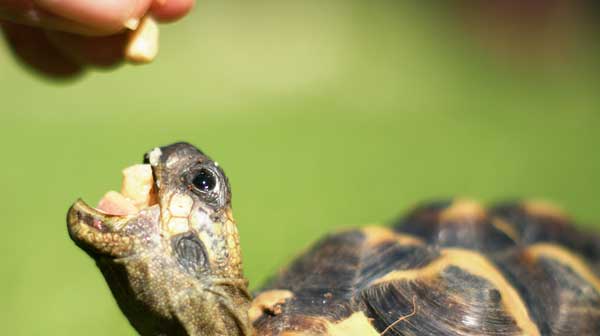
Low on Fiber
54 grams of sugar are included in every 100 grams of chocolate. Furthermore, a turtle’s stomach doesn’t contain enzymes capable of breaking down large quantities of sugar. Sugar is known to increase lipid levels and insulin resistance in turtles.
It may be assumed that giving small amounts of chocolate here and there won’t be an issue. Most of the time, there are no immediate consequences. However, over time, the sugar and cholesterol in chocolate will undoubtedly result in issues like obesity and development retardation.
Turtles Cannot Digest Dairy
There is a misconception that dairy is necessary for reptiles at any point in their lives. They are deficient in the enzymes’ ability to digest and decompose dairy.
Dairy products can be harmful to reptiles, causing digestive problems and even death. If you’re considering adding a reptile to your family, it’s best not to include dairy products in their diet at all.
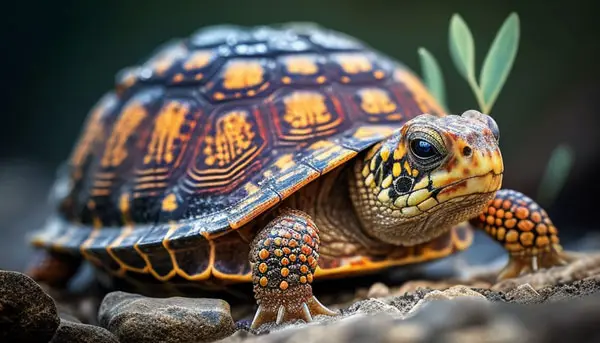
Chocolate bars contain dairy goods like milk or milk powder. This might upset your turtles’ tummies and lead to diarrhea which may cause death.
Full of Synthetic Materials
Chocolates from the store are loaded with artificial flavors, colors, and chemicals. Naturally, all of them are harmful to your pet turtle. They will have negative consequences, even if there isn’t any conclusive evidence of their consequences on turtles.
The components in chocolates, which include saturated oil, vanillin, glucose syrups, and polyol, will cause mayhem in your turtle’s digestive tract.
FAQs
Box turtles are omnivorous and will eat anything, but giving them dairy products like cheese, milk, yogurt, or chocolate can make them unwell. Dairy is indigestible for box turtles and can make them sick. If your turtle is exhibiting any symptoms like throwing up, diarrhea, or lethargy, it is best to avoid giving them dairy products.
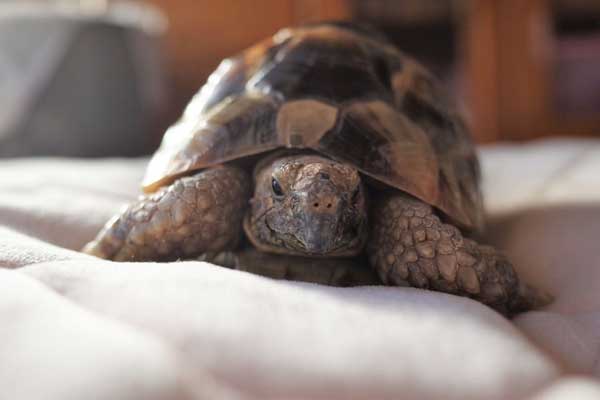
Red-Eared Slider Turtles are omnivorous and feed on a variety of live and dead organisms. However, feeding them food with chocolate, processed sugar, or syrup from corn can be harmful to their health.
These ingredients can be toxic to the turtles’ systems and could cause significant health problems. Feed your turtles a healthy diet consisting of fresh fruit, vegetables, and insects instead.
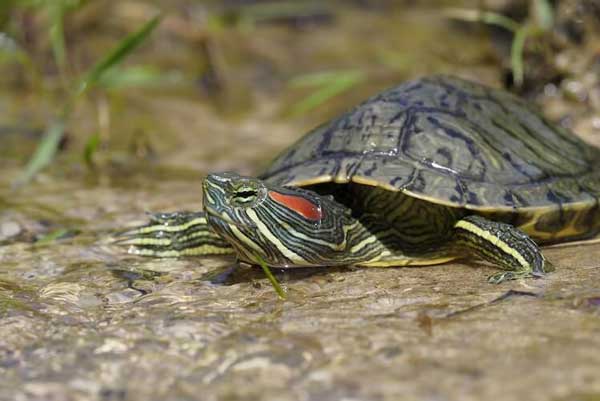
Chocolate does not belong to the painted turtle diet. The painted turtle is a species of turtle that inhabits the eastern United States and southeastern Canada. Yet, painted turtles are unable to digest chocolate because it contains caffeine and other compounds which are not found in their natural diet.
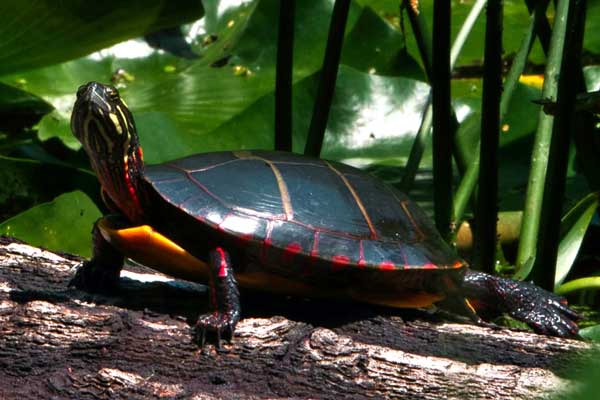
Final Words
Chocolates are not healthy for turtles and should not be given to them as a snack or treat. Many other, healthier foods can be offered to turtles, such as fresh fruits and vegetables.
Too much chocolate can cause health problems for turtles, such as obesity, diabetes, and heart disease. So please, don’t give your turtle any chocolates!
Do you want to know if turtles eat grapes or celery? Read our articles about it to learn more.
